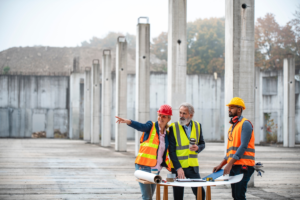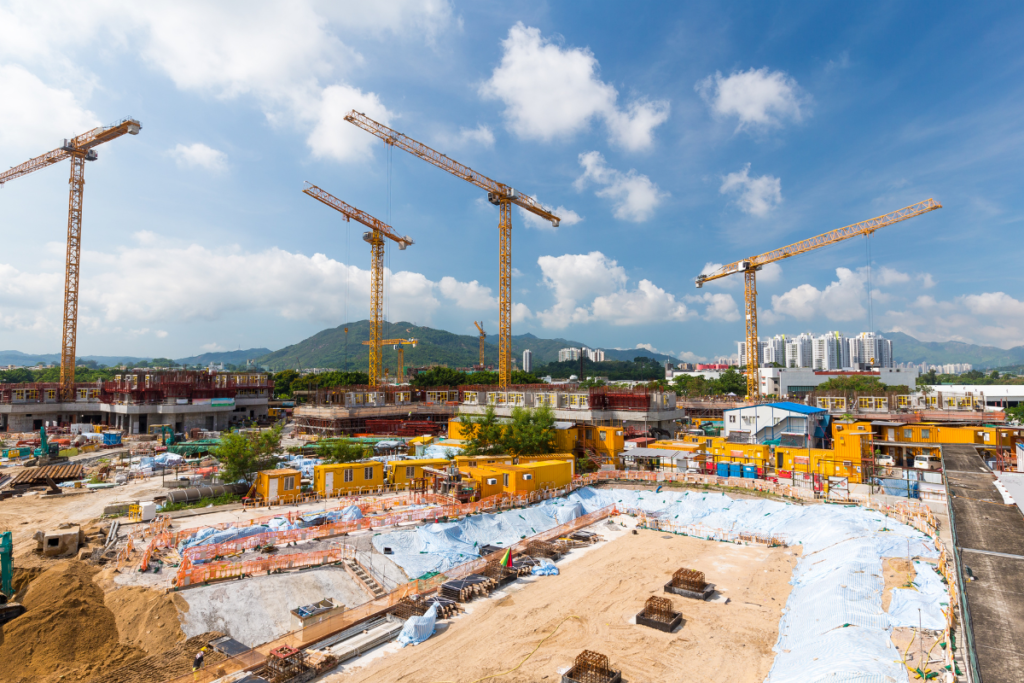 Introduction to Construction Project Cost Estimating:
Introduction to Construction Project Cost Estimating:
Construction project cost estimating is a critical aspect of any building or renovation process. Getting the budget right from the start can make the difference between success and failure. Underestimating costs can lead to financial strain, project delays, and frustration, while overestimating could make the project unaffordable for clients or developers. Therefore, accurate and reliable construction project cost estimating is essential to ensure the project runs smoothly, stays within budget, and meets deadlines.
In this article, we will dive deep into construction project cost estimating, the key elements involved, and why it is crucial to the success of your project.
Importance of Construction Project Cost Estimating
A proper construction project cost estimating is the foundation of successful project management. It helps in setting a realistic budget, planning resources, managing expectations, and ensuring all aspects of the project are financially feasible. Without an accurate cost estimate, unforeseen expenses can arise, derailing the entire project and causing delays or compromises in quality.
Cost estimation also fosters transparency between contractors and clients. When both parties have a clear understanding of costs, there is less room for disputes and misunderstandings down the road. Additionally, precise estimates help in securing financing, as lenders are more likely to approve loans when they are confident that the project is well-planned financially.
Key Elements of Construction Project Cost Estimating
There are several key factors that go into calculating a construction project cost estimating. These include:
1. Material Costs
One of the largest expenses in any construction project is the cost of materials. This includes everything from basic building supplies like cement and steel to specialized finishes like tiles or paint. The cost of materials can fluctuate based on market conditions, availability, and the quality chosen. An accurate estimate must consider not just the price but also the quantity of materials required.
2. Labor Costs
Labor is another major component of construction costs. The wages for skilled and unskilled workers vary depending on the complexity of the project and the region in which the work is being done. Estimating labor costs requires a good understanding of the hours each task will take and the hourly rates for different types of workers, including electricians, plumbers, and carpenters.
3. Equipment and Machinery
Construction projects often require specialized equipment, such as cranes, bulldozers, or scaffolding. Renting or purchasing this equipment adds to the overall cost. The cost estimation must include both the usage time of these machines and any transportation or maintenance fees associated with them.
4. Permits and Fees
Every construction project requires certain permits, which can vary by location and the type of work being done. These include building permits, zoning approvals, and environmental clearances. Estimating these costs is crucial, as failure to obtain the proper permits can result in fines, delays, or even project cancellation.
5. Contingency Reserves
Unexpected expenses are almost inevitable in construction projects. That’s why it’s vital to allocate a portion of the budget to contingency reserves. This reserve typically ranges from 5% to 10% of the total project cost, covering unforeseen costs like material price hikes, weather delays, or design changes. Including a contingency plan in the construction project cost estimating ensures the project can continue smoothly even when surprises arise.
6. Subcontractor Fees
In larger construction projects, subcontractors are often hired to perform specific tasks, such as electrical or plumbing work. Their fees should be carefully calculated in the cost estimate, taking into account their rates, timelines, and the potential for unforeseen challenges in their scope of work.
7. Project Management and Overhead
Project management fees and overhead expenses (such as office space, utilities, and administrative support) should be factored into the overall cost estimation. These costs ensure that the construction team can work efficiently and have the support they need to complete the project on time.
Types of Construction Cost Estimating
Different methods can be used to create a construction project cost estimating depending on the size, complexity, and stage of the project. Here are the most common types:
1. Preliminary Estimates
These estimates are often created early in the project planning phase, giving a broad overview of costs. While less accurate, they provide a good starting point for understanding the project’s feasibility.
2. Detailed Estimates
As the design progresses, detailed estimates are created, breaking down the costs into individual components. These estimates offer a higher level of accuracy, giving project managers and stakeholders a clearer view of what the project will cost.
3. Quantity Takeoff Estimates
This method involves calculating the exact quantities of materials and labor needed to complete the project. A quantity takeoff estimate is highly detailed and requires thorough planning to ensure nothing is missed.
4. Bid Estimates
When contractors submit proposals for a project, they often include a bid estimate, which details the costs associated with their specific services. This estimate is used by clients to choose a contractor, and it typically includes all the necessary work, materials, and labor needed to complete the project.
Common Challenges in Construction Project Cost Estimating
Despite careful planning, estimating costs can be tricky, and several challenges may arise:
- Inaccurate Measurements: If the project’s scope or design changes mid-project, the original estimate can quickly become outdated, leading to significant cost overruns.
- Market Volatility: Prices for materials and labor can fluctuate due to supply chain issues, economic conditions, or demand. This can make it difficult to predict the exact cost of a project months or years in advance.
- Underestimating Complexity: Some construction tasks may seem simple at first but become more complicated once work begins, resulting in higher labor and material costs.
The Role of Technology in Construction Project Cost Estimating
Today, advanced technology, including construction estimation software and AI-powered tools, is playing an increasingly important role in construction project cost estimatin.g These tools help project managers create more accurate estimates by automating calculations, providing real-time updates on material prices, and allowing for better collaboration among team members.
Software like ProEst, Buildertrend, and PlanSwift can streamline the estimation process, making it faster and more precise. These tools can also store historical data, enabling contractors to use past projects as a reference for future estimates.
Accurate construction project cost estimation is the backbone of successful project planning. By considering all relevant factors—material costs, labor, equipment, permits, and more—you can create a reliable budget that minimizes financial risk and keeps the project on track. Technology and detailed planning further enhance the accuracy of cost estimates, helping contractors and clients achieve their construction goals efficiently and without unpleasant surprises.
Are you looking for the best estimating services in USA?
Look no further than “https://zionestimating.com”
They are offering top-notch services like;
- Construction/cost estimation
- Budget planning
- Material takeoff
- Equipment estimation
and further more!!!
Here are some more information for your convenience:
Phone no. : +1 718-427-9941 || +1 562-383-6177
Email:[email protected]
Visit their blogs and site
https://zionestimating.com for the latest updates and service tips!
